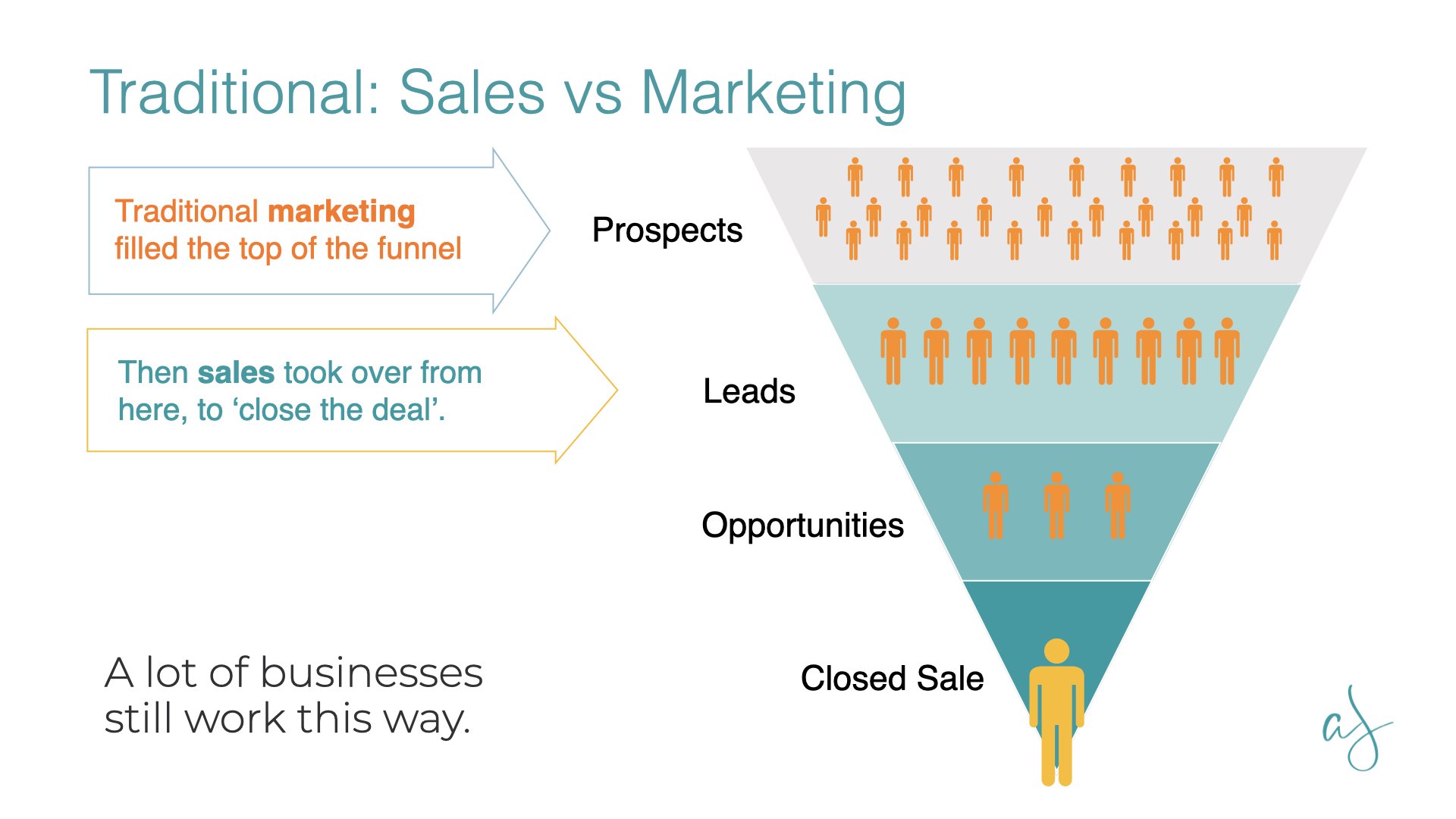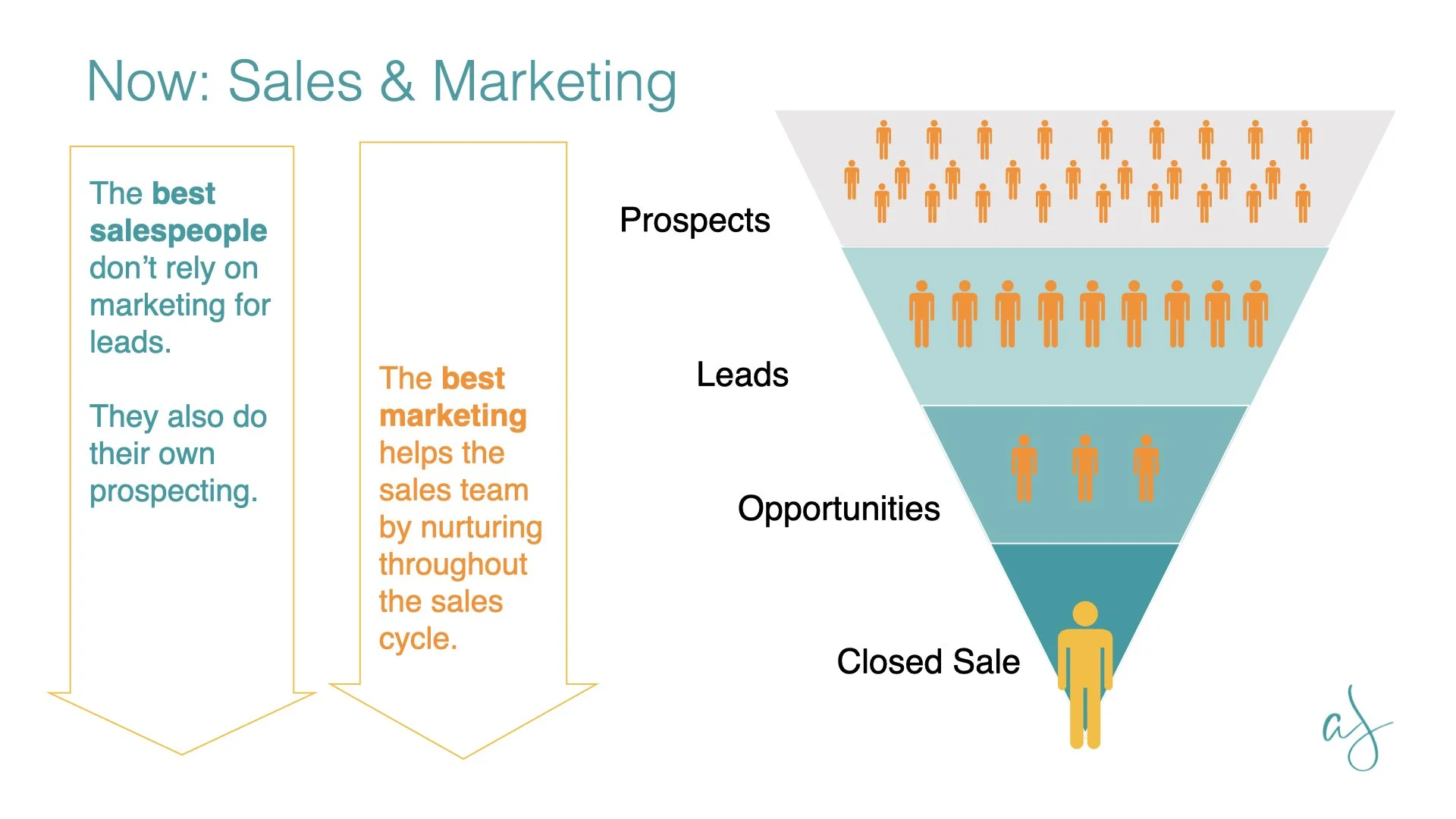What’s the Difference between Sales & Marketing?
This is a question that I think a lot of us ponder, but we often are not clear on the answer to. Let’s take a look at the main differences between Sales & Marketing, so that we can understand how to approach them differently.
Have you ever Googled how to sell to businesses? You get a lot of rubbish, right?
You also get a lot of advice about how to market to businesses, primarily through digital channels. I’d like to talk a little about why it is important to think about sales as different to marketing, especially if you are selling a higher priced or more complex solution to other businesses.
One-to-One vs One-to-Many
The main difference between sales and marketing, is that market is fundamentally a one to many approach. That is, you (the ‘one) have a message you want to reach a large number of people (the ‘many’).
Sales, on the other hand, is about you building a one-to-one relationship with another business. You may have relationships with more than one person in that business (in fact – that should be one of your goals), but you have a one-to-one relationship with each of them.
This is a key, and important, difference.
Capturing Leads vs Progressing Sales
Traditionally, marketing is used to identify leads. Those leads are then picked up by a salesperson, they work on the lead to progress it through the stages of the sales process, to close the deal.
Marketing is an important tool at the beginning of your sales process. You need to be doing marketing of some sort, to help you find those out there in your target market who are the right fit to follow up with your sales efforts.
But what you don’t want to do, is spend all of your time identifying leads – but then not properly following them up. Understanding how to identify leads, and how to walk them through a process to a positive outcome for the customer and you, is where the sales stuff comes in.
Marketing & Sales Working Together
Although traditionally marketing operates at the beginning of the funnel, the best companies now use marketing to assist the sales team in nurturing leads and opportunities at all stages through the sales process.
This is usually still a one-to-many approach. For example, marketing activity might include a follow up email to people who have downloaded one of your white papers. A good salesperson will then personally follow up with that lead. Marketing may assist the salesperson in providing some additional sales tools to help them in their conversations, at different stages through the sales process.
Good marketeers listen to feedback from their sales team, to hear what is working in the field and isn’t. They help them with marketing approaches and tools to overcome objections that come up through the sales cycle, that prompt good conversations with prospects. They work with salespeople to provide openings and opportunities for conversations and to engage with prospects, through activities like webinars and events.
Good salespeople don’t leave prospecting up to marketing. They get out there and help to build their own pipeline and don’t rely on marketing for leads.
If you would like to learn more about how sell to businesses, check out our 12-Week Sales Incubator Course.



